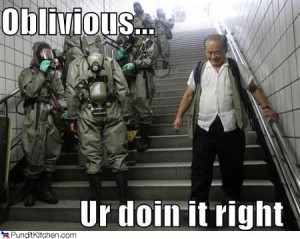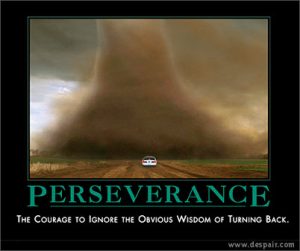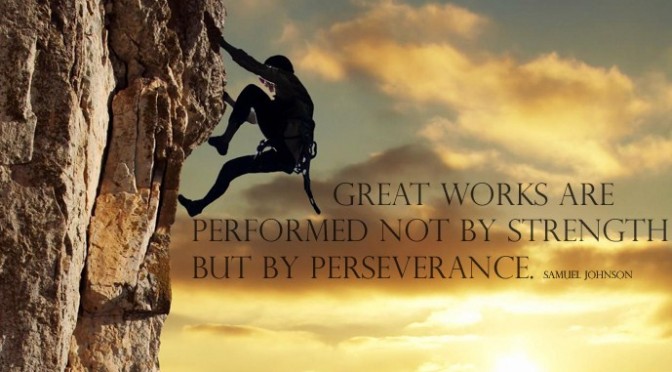A lot of how we approach our profession as writers is mental. In fact, except for the movement of our fingers as we write or type the things coming from that mind, everything is mental. But as we approach it we tend to have some problems with being able to sort out the emotional end of things and the logical side. Frankly, we’re often subject to some judgment from the people around us, either as an under appreciated person often dismissed or someone who is too caught up in our own issues. But understanding that is a key part of being a good writer. After all, if you’re going to get beyond the bullshit in your life, you need to know it’s coming.
Having gotten over my own inherent bullshit, I’ve come back to this, the third and final part of my attempt to explore…other people’s bullshit (and my own) about the writing profession. And what’s left for me to cover? Well, I’ve already hit the people who are way too casual about the job and the people who are just a wee bit too intense about it. So really all that’s left to cover is…well… being rational and finding a middle ground in it all.
The Goldilocks Zone
 The first aspect of the inherent bullshit of being rational as a writer is the myth of something I call “The Goldilocks Zone”. You can think of the Goldilocks Zone for writers as being like the Twilight Zone… with bears! It’s not too easily obtained and being able to get in there requires you avoid being mauled by something on the way in.
The first aspect of the inherent bullshit of being rational as a writer is the myth of something I call “The Goldilocks Zone”. You can think of the Goldilocks Zone for writers as being like the Twilight Zone… with bears! It’s not too easily obtained and being able to get in there requires you avoid being mauled by something on the way in.
I’m borrowing this term from Astronomers for the point where in life can exist in a state which we’re familiar with. It works well for this too because only in The Goldilocks Zone of writing can sane people thrive. You see, most people with a completely normal outlook on life can’t actually manage to be a writer for long without losing their shit at least once. Either they’re going to not actually be a writer (because they don’t take it seriously) or they’re going to try to be a writer and then go completely batshit within a year or two and begin the roller coaster of highs and lows that interchange rapidly.
But then there’s The Goldilocks Zone, that magic point where they’re just serious enough to get it done but just relaxed enough to not want to stick their head in an oven after a dozen rejections. It’s a beautiful, magical place of sanity where someone realizes that this is a competitive market and not every single rejection is a sign of the coming apocalypse. These are the ones who make a reasonable living doing what they enjoy without becoming so entangled in it that they feel every editing mark like a dagger in the back. Sounds lovely, doesn’t it? So why do I think it belongs here in the pantheon of Inherent BS?

It doesn’t exist! There’s no middle point where everything’s “just right”. What you can get are the people who think they’re in that zone. They’ll sound sane, they’ll look sane, they may even have a couple copies of some book printed. But anyone who’s really fallen into the serious category is completely off their rocker on some level. Though, sometimes you get the people who aren’t serious but fall ass backwards into a giant publishing contract for no damn good reason. But those people don’t count either – they’re not really serious, just lucky, and thus have no balance. Point remains, if you’re serious, you’re crazy, it’s just variances of how crazy you actually are and how crazy other people think you are.
But that’s okay, because we’re all a little crazy and that means it’s perfectly reasonable for you to have those highs and lows. You’re not really some strange outlier in the profession, you’re normal. Everyone gets a little depressed about losing out on some opportunity or being rejected. Everyone knows the feeling of a story not taking off the way you’d hoped. Some people try to pass it off as if it doesn’t impact them, but it’s that little bit of crazy that makes us try harder in the end. So go on, be crazy, and ignore the myth that you should be perfectly zen while doing this.
And, to that point, by accepting the crazy is normal we should also accept that we need to expose ourselves a little bit and avoid…
The Emperor’s New Prose

Another BS aspect of “rationality” is on the side of the readers. Several times in the past I’ve seen the differing opinions of what people should or shouldn’t do when it comes to having their friends reading their work rather than going straight into the lion’s den. Several times people have advocated the “never use your friends” philosophy as a rule of thumb, and in a lot of cases they’d be right.
Sure, your friends are the people you can trust and the people who can be counted on to be there whenever you need quick input. But these people are also the people who care if your feelings get crushed. No matter who your friends are, they’ll always have this bias towards your well being. The difference comes in how exactly they interpret your needs.
Say, for instance, they think that protecting you means not upsetting you by giving you bad news. These people will lie through their teeth to make sure that you don’t suffer the pain of having to deal with what they really think. They really think they’re doing you a favor and in turn they are, but only short term. They’re protecting you without considering the long term consequences of their protections. They may prevent you from feeling like a fool today, but once you’ve been exposed to the public it’s only a matter of time before some kid points out the fact you’ve just left your house without a stitch of clothing despite being perfectly sober.
And if you’re not sober, those same friends need to man up and get you that intervention they’ve been considering.
It doesn’t end at that point either. You’ve got to consider the fact they may hold onto the lies after they’ve sent you plastered into the public eye. Once it gets back, knowing damn well that your story wasn’t good enough, they’ll still hold onto the idea that you should keep supporting it. “Keep trying,” they’ll say, “A little perseverance goes a long way!”

But if they really want to see you succeed, they’ll be as blunt as a baseball bat up the side of the head. Famously, JRR Tolkien was told by one of his friends “not another fucking elf”. Obviously, that man did not have a circle of friends who cared much for his feelings and well-being. And look at what became of his work generations later. Think of it as “skull training”. You let them hit you over the head with your own manuscript enough times and you’ll adapt to avoid further concussions or learn how to disarm them with a swift kick to the jimmies.
But how do you know which group you have? Well, if they’re always praising your work but you don’t see any progress, you know you’re probably dealing with a group of yes men. On the other hand, if they critique you, there’s still a 50/50 shot they might be holding back the stuff they’re really concerned about.
Not long ago I told someone her character reminded me of Bella Swan without the vampires. It was a bit blunt, little brutal, but once I’d said it, a couple of her friends repeated the same thing. Obviously, none of them wanted to take the first stab at her kidneys, the messy work was left to me. But if they’d just gotten it over with, the suffering would have been a little less drawn out.
So what does a writer do about the friend issue? Approach them with caution and watch for patterns. If you’ve got a pattern of people raining sunshine on your every work, you should move on. If they’re providing criticisms but you feel some hesitation from them, you should push for harsher criticisms or find someone who’ll provide it. But in the end, just make sure that you surround yourself with people who are blatantly honest.
But not that honest.
And, to be honest, I would like you to look at my books. Do it and you might get a bracelet! Okay…not really.








